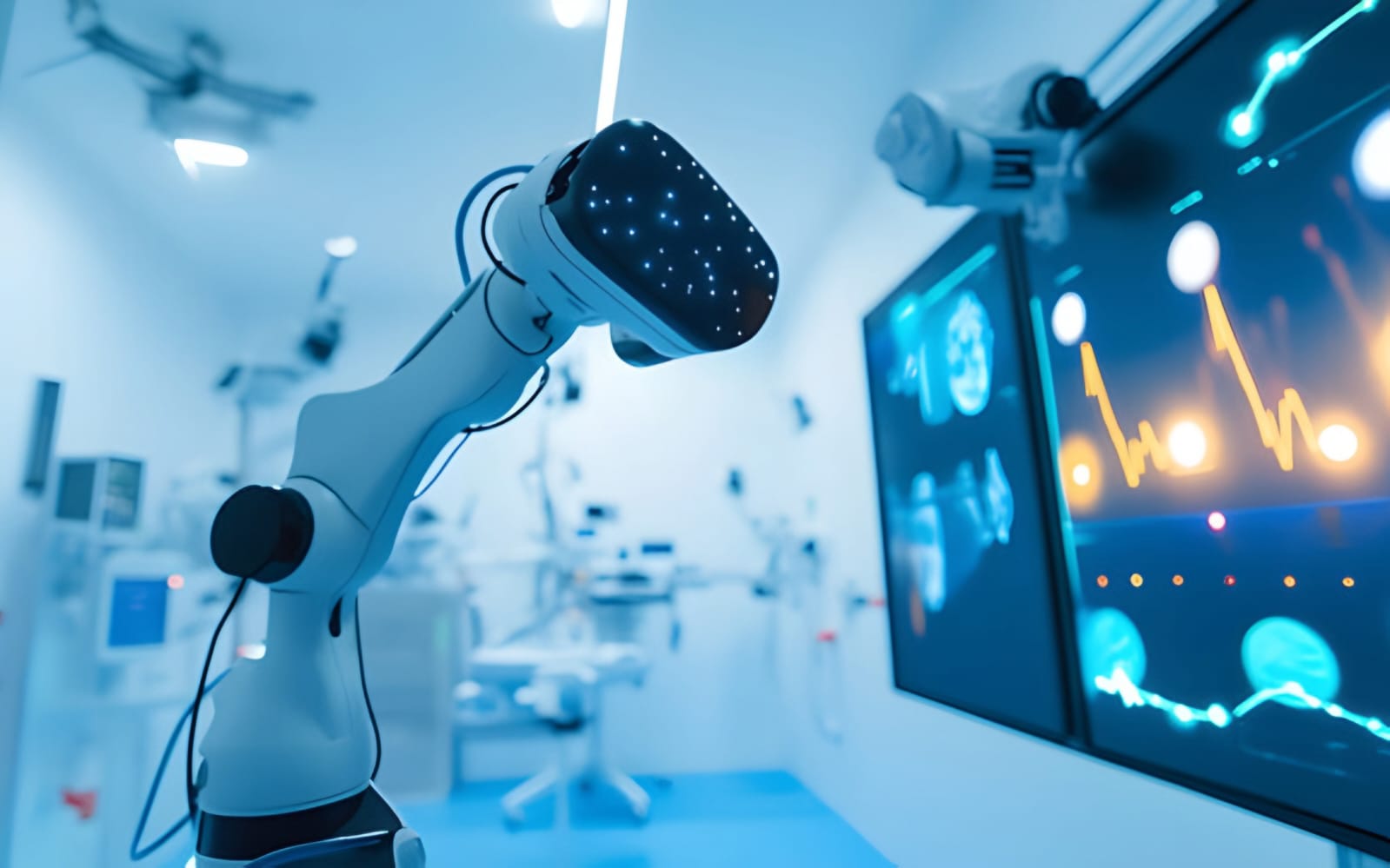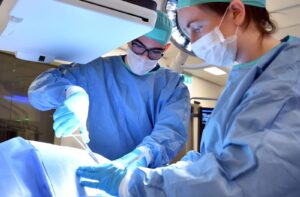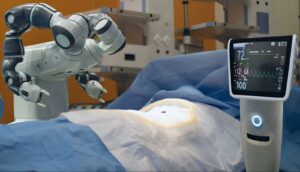
Contents
- 1 The Role of Artificial Intelligence in Modern Healthcare
- 1.1 Understanding AI within the Medical Context
- 1.2 Diagnosing Ailments Sooner and Extra Precisely
- 1.3 Customized Remedy: Drugs Meets Machine Studying
- 1.4 Digital Well being Assistants and Distant Monitoring
- 1.5 Administrative Effectivity and Lowering Doctor Burnout
- 1.6 Moral Concerns and Challenges
- 1.7 Wanting Ahead: AI and the Way forward for Drugs
- 1.8 Conclusion
The Role of Artificial Intelligence in Modern Healthcare
The Role of Artificial Intelligence in Modern Healthcare and most crucially, how we strategy well being. From early illness detection to customized remedy plans and hospital workflow optimization, AI has firmly planted itself on the middle of recent healthcare. However what precisely is it doing, and the way is it altering outcomes for each sufferers and professionals?

Understanding AI within the Medical Context
AI in healthcare refers to using algorithms, machine studying, and knowledge analytics to imitate human cognition within the evaluation, interpretation, and comprehension of advanced medical and healthcare knowledge. It isn’t about changing docs—it is about equipping them with instruments that make their diagnoses extra correct, their therapies extra customized, and their choices extra knowledgeable.
The functions are huge, and rising quick. As digital well being data, wearable sensors, and medical imaging gadgets produce mountains of information, AI has stepped in as a strong interpreter of that info.
Diagnosing Ailments Sooner and Extra Precisely
One of the vital transformative roles AI is taking part in is in prognosis, notably in areas like radiology, pathology, and ophthalmology. AI-powered instruments can now analyze medical pictures equivalent to MRIs, X-rays, and CT scans with velocity and precision. In lots of instances, algorithms have demonstrated diagnostic accuracy on par with, and even exceeding, skilled human specialists.
As an example, AI techniques educated on 1000’s of mammograms can detect early indicators of breast most cancers that the human eye may miss. Equally, diabetic retinopathy—a number one reason for blindness—can now be screened by AI instruments, even in distant areas the place ophthalmologists aren’t out there.
However AI’s diagnostic prowess isn’t restricted to imaging. Pure language processing (NLP) permits AI to learn and interpret docs‘ notes, lab stories, and even genetic knowledge to help in advanced diagnoses.
Customized Remedy: Drugs Meets Machine Studying
Each affected person is exclusive, but many therapies nonetheless observe one-size-fits-all fashions. AI helps to vary that by enabling precision drugs—the tailoring of medical remedy to the person traits of every affected person.
Machine studying fashions can analyze huge datasets, together with genetic profiles, way of life components, and response histories, to advocate therapies most certainly to be efficient for a selected particular person. That is particularly related in oncology, the place understanding how a tumor’s genetic make-up responds to sure medicine could make the distinction between life and demise.
Even exterior of most cancers remedy, AI helps handle persistent circumstances like diabetes, coronary heart illness, and bronchial asthma. Predictive fashions can forecast potential issues, permitting preventive motion earlier than a disaster happens.
Digital Well being Assistants and Distant Monitoring

With the rise of telemedicine, AI has discovered one other area the place it thrives: digital care. AI-powered chatbots and digital assistants are already getting used to offer primary well being recommendation, schedule appointments, and monitor signs.
In additional superior situations, wearable gadgets like smartwatches observe coronary heart price, sleep patterns, and bodily exercise. When related with AI, these gadgets can alert customers—and their docs—of irregularities equivalent to arrhythmias or irregular glucose ranges.
This steady monitoring permits earlier interventions and offers sufferers a larger sense of management over their well being, all with no need to be in a hospital mattress.
Administrative Effectivity and Lowering Doctor Burnout
Medical doctors didn’t signal as much as develop into data-entry clerks, but administrative duties devour a good portion of their time. AI will help right here too—by automating routine paperwork, transcribing medical notes, and even coding for insurance coverage claims.
Pure language processing instruments can hear throughout affected person consultations and routinely generate medical documentation, releasing up docs to give attention to what they do finest: caring for sufferers.
In a subject the place burnout charges are alarmingly excessive, these instruments do not simply enhance workflow—they’ll enhance psychological well being for suppliers as nicely.
Moral Concerns and Challenges
Regardless of its promise, AI in healthcare isn’t with out challenges. Considerations over knowledge privateness, bias in algorithms, and lack of transparency are legitimate and have to be addressed.
AI techniques are solely pretty much as good as the info they’re educated on. If that knowledge lacks variety, the system might make inaccurate predictions for sure populations, exacerbating well being disparities. There’s additionally the matter of accountability—who’s accountable when an AI system makes a improper name?
Regulation, transparency, and human oversight can be key to making sure AI in healthcare stays a reliable accomplice, not a problematic disruptor.
Wanting Ahead: AI and the Way forward for Drugs
As we glance to the longer term, the position of AI in healthcare will possible increase past prognosis and remedy. We’re starting to see its use in drug discovery, the place AI can simulate 1000’s of chemical interactions in a fraction of the time it takes in a lab. It’s getting used to design higher medical trials, predict illness outbreaks, and even counsel hospital useful resource allocation methods throughout crises like COVID-19.
However essentially the most thrilling potentialities lie in AI’s potential to empower folks to take cost of their well being. Think about an AI-driven private well being coach that is aware of your medical historical past, displays your vitals, and may predict while you‘re in danger earlier than you ever really feel sick.
Conclusion
AI isn’t right here to switch docs or nurses—it’s right here to increase them. In doing so, it guarantees a healthcare system that’s extra proactive, customized, environment friendly, and accessible.
The journey isn’t with out its bumps, but when guided responsibly, AI can be remembered not simply as a technological leap—however as a humanitarian one. In a world where healthcare systems are often overwhelmed and resources are stretched thin, artificial intelligence presents a forward-looking solution that is more intelligent, faster, and ultimately more human.
